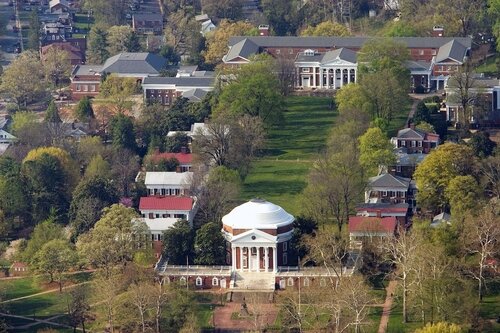The University of Virginia (UVA), often referred to as UVA, is an institution that has been a pioneer in the world of education and research. With a rich history dating back to its founding in 1819 by Thomas Jefferson, UVA has continuously excelled in producing knowledge and nurturing academic excellence. In this article, we will explore the legacy, achievements, and significance of the University of Virginia, highlighting its key contributions to the world of knowledge.
A Storied History
Founding Vision
The University of Virginia (UVA) was founded by Thomas Jefferson, the third President of the United States and the principal author of the Declaration of Independence. Jefferson’s vision for UVA was to create an institution that emphasized the importance of intellectual freedom, academic rigor, and the pursuit of knowledge. His ideals are still deeply ingrained in the university’s culture.
Groundbreaking Academics
Since its inception, UVA has been a trailblazer in academics. It was the first university in the United States to offer a comprehensive program in architecture, and it continues to be a leading institution in various fields, including law, business, medicine, and the arts.
Research Excellence
Cutting-Edge Research Centers
UVA is home to numerous research centers and institutes that have made substantial contributions to various fields. The university has been at the forefront of groundbreaking research in areas such as neuroscience, environmental science, and information technology.
Nobel Laureates and Innovators
Over the years, UVA has produced Nobel laureates and innovators who have made significant contributions to society. Their research and discoveries have had a lasting impact on various aspects of human life.
A Commitment to Knowledge Dissemination
Publishing Prestige
UVA places a strong emphasis on knowledge dissemination. The university has been associated with prestigious academic journals and publications that serve as platforms for sharing research findings with the world.
Open Access Initiatives
UVA is committed to open access initiatives, making a considerable amount of its research and resources available to the public for free. This commitment to open access promotes knowledge sharing and academic collaboration.
Diversity and Inclusivity
Inclusive Learning Environment
UVA takes pride in its diverse and inclusive learning environment. It values the contributions of students, faculty, and staff from all walks of life and actively promotes an atmosphere of mutual respect and understanding.
Scholarships and Support
The university offers a range of scholarships and support programs to ensure that a UVA education is accessible to students from various backgrounds. This commitment to inclusivity fosters a rich and vibrant academic community.
Cultural Impact
Historical Preservation
The University of Virginia (UVA) is deeply involved in the preservation of history, culture, and art. The university’s Rotunda, designed by Thomas Jefferson, stands as a symbol of architectural and historical significance.
Art and Literature
UVA’s influence in the world of literature and the arts is evident through the contributions of its alumni and faculty. The university continues to nurture creative talents and celebrate the arts.
Community Engagement
Local and Global Initiatives
UVA actively engages with the local community and participates in global initiatives. The university’s commitment to community service and outreach is a testament to its dedication to making a positive impact on society.
Medical Advancements
UVA’s healthcare system is renowned for its contributions to medical research and patient care. The university’s medical facilities have pioneered various treatments and advancements in healthcare.
Conclusion
The University of Virginia (UVA), through its remarkable history, commitment to research, dedication to knowledge dissemination, inclusivity, cultural impact, and community engagement, stands as a hub of knowledge and excellence. It continues to play a vital role in shaping the academic, cultural, and societal landscape, reaffirming its status as an institution that embodies the ideals of its visionary founder, Thomas Jefferson.







